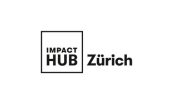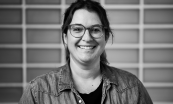
December 2017
RICOLAB | How to co-create a (radically unique) corporate innovation lab
A conversation with the CEO of Ricolab, Eva Richterich, and the co-founder of Impact Hub, Niels Rot, on how to build a radical innovation lab that’s still strongly connected to the roots of its parent company.
Eva, Ricolab is the radical innovation lab of the Swiss company Ricola AG. Where did the original idea for an innovation lab come from?
Eva: I co-developed the initial idea for the “lab” with the CEO of Ricola, Felix Richterich – also drawing on input from many people within and around Ricola. It was one of those ideas that multiple people have simultaneously for a reason. There were two main drivers: the desire to think long term and test new ideas ahead of time, and the need to understand the “new world” which is forming around us.
Niels, so how did Impact Hub Zürich get involved in this?
Niels: Eva approached us with her original idea for a lab and then we essentially co-developed a plan and a process for making this a reality. One of the reasons we were immediately interested was the idea of committing to the UN Sustainable Development Goals, which is exactly in line with Impact Hub Zürich’s Co-Manifesto.
And what was then the process from the original idea to today’s Ricolab?
Eva: First we created and aligned the cornerstones. This took some time and happened in collaboration with the board of directors and the executive board of Ricola. These cornerstones were:
- Value alignment: The long-standing values of Ricola had to be at the core of every innovation we develop.
- Time horizon and scope: Our work would focus on the next 20-30 years and would be in addition to the parent company’s business development and innovation.
- Sustainability: As a future lab, we want to create business ideas that are part of a solution for a sustainable world – and not part of the problem. We therefore chose to use the UN SDGs as the framework for our innovations.
- Independence: In order to operate outside of today’s business logic and thus fulfill our role as a future radar and future development lab, we needed a high degree of independence from our parent company.
Niels: We then used a customer-centric lean startup approach to move quickly from “concept” to “implementation”. Some of the key principles there were:
- Co-creation: Instead of going to the board with the final concept, we went with early-stage drafts and asked for feedback and input. This helped with curating the co-ownership with the current CEO and the board and resulted in an official sign-off within 9 months.
- Lean startup approach: Instead of trying to figure out our implementation strategy in a project plan, i.e. in theory, we started with a beta phase, which means we continuously developed something and tested it in reality. Within roughly half a year we had developed our innovation approach, built content and knowledge and put together a top-notch team as well as an initial community of interested people. In other words, we “reasoned while executing”.
- The importance of a bridge builder who understands both cultures. In our case this was (and is) the CMO of Ricola, Raphael Richterich, who worked with us early on to align interests, create trust and develop synergies.
So where is the lab today?
Eva: We are a fully functioning lab with an amazing core team consisting of Tatjana de Kerros, Rasmus Nutzhorn, Benjamin Gräub and myself. We currently have two innovation sprints going on: one on food traceability and sustainability, and one on VR and nature. Apart from the sprints, we’re also building a growing community of top experts, are starting to collaborate with startups and are working on aggregating everything we learn. All of our work is linked back to Ricola via the overarching theme of “Herbs & Technology”. We are essentially the fast and lean speedboat that complements the larger, steady mothership.
Of course we have a lot of areas we would like to develop. One of them is how to better integrate the SDGs in our operations. Another is feeding our experience and knowledge back into our parent company – and actually also into our own work
Would you go through this process again?
Eva: Definitely, but I would need a few days off before doing it all again (laughs). A process like this is not a walk in the park, but it is extremely fulfilling, exciting and involves a steep learning curve – and of course we ARE going through it all the time because the development never stops. As for the initial phase you asked about, going through this with Impact Hub Zürich was essential to get to the level we are at now. I would only do this again with a partner like that to support us.
Niels, what have you learnt from Impact Hub?
Niels: Once again I’ve learnt that a project like this needs absolute passion with the people driving the process. You need a vision early on in the project which serves as an energy-giving “northern star”. You also need a long-term vision and a little courage from the parent company to initiate such a process. Furthermore, it was very important to dare to be radical and create something unique. The values, independence and the “edginess” of Ricolab created the DNA for a truly future-oriented innovation lab.
Do Impact Hub and Ricolab still work together?
Eva: Yes, we transformed our collaboration into a partnership agreement so we can keep on exchanging and learning from each other and be part of each other’s ecosystems.
And would you, Niels, also do it again?
Niels: Sure, we at Impact Hub Zürich loved working on this project and we are now in talks with several partners to help them set up similar labs.
Get the newest blog posts directly into your mailbox with our newsletteror become part of our community yourself!
Subscribe to Our Newsletter
Never miss an update – sign up for our newsletter published every 3-4 weeks and stay connected with our community.


